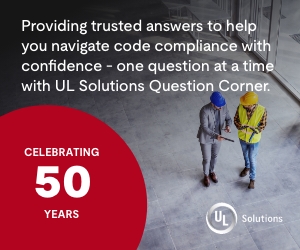Collaboration separates excellence from mediocrity. Whether it is two people in adjacent offices or an entire city electrical inspection department, if the people involved are unwilling to collaborate, they will produce mediocre results.
In this article you will learn a simple way to improve collaboration within IAEI and in your organization.
But first, a question:What do you value most about your membership in IAEI? Without knowing your answer, I am willing to go out on a limb and bet that the benefit you receive, in some way is the direct result of collaboration.
Whether it is your growing network of colleagues that stretches across international borders, the educational seminars and workshops, local chapter meetings, your magazine, or your involvement on standards committees, each of these is possible only because people collaborate.
Consider now, the wide range of motivations for collaboration. At one end of this motivational spectrum is fear; while at the other end is gratitude and appreciation.
Let me share two examples from my recent experience that nicely illustrate each end of the spectrum.
First, imagine a niche group of employers challenged with being unable to recruit qualified workers. This challenge threatens the future of each company as their operations depend upon a highly skilled workforce. The realization of this recruiting challenge caused a group of staunch competitors in my home province to quickly organize themselves to solve problems of common interest. It is good that these employers came together, but their collaboration was driven by fear — fear of not having the right employees and, ultimately, fear of going out of business.
Next consider an example driven by gratitude and appreciation. This happened at an offsite retreat consisting of a group of commercial realtors. Although these realtors work for the same company, for all intents and purposes they compete with each other. In fact, their business culture can be quite divisive due to the commission compensation structure within which they operate.
The broker who owns the business began the meeting by asking each person to identify one thing they appreciated about one other person at their table and to share it with the entire group. Almost everyone in the room began to get a bit anxious as they questioned the need for doing this — after all, “we came here to learn how to be more profitable and grow our business” (feel free to replace the phrase in quotations with “to more effectively conduct electrical inspections”). The anxiety passed quickly as people began to see the benefit of this simple exercise before less than half of the attendees spoke.
Without exception, every person felt honoured — and it was all spontaneously genuine, nothing planned nor contrived. Over the course of the next two days, I witnessed improvements in how the group connected and interacted — in large measure because they now knew how and why they were appreciated by their colleagues.
If you would like to improve collaboration within your team or even within IAEI, then try this. Think of someone on your team or within IAEI that you really appreciate. Then pick up the phone, call them and let them know what you appreciate about them. If appropriate, thank them for what they have done for you. If you get their voicemail, leave a message that they will want to listen to over and over again (rather than immediately hitting “delete”). Be genuine with your message and be prepared to praise them by expanding on what they did, what it means to you, in essence, why you appreciate them.
This very simple exercise will improve collaboration but do not do this for the primary purpose of improving collaboration. Rather, do it to express your genuine appreciation for someone’s contribution.
I would appreciate hearing about your experience after you do this. What kind of response did you get and how did you feel doing this? Drop me a note at steve@giveraising.com.







Find Us on Socials